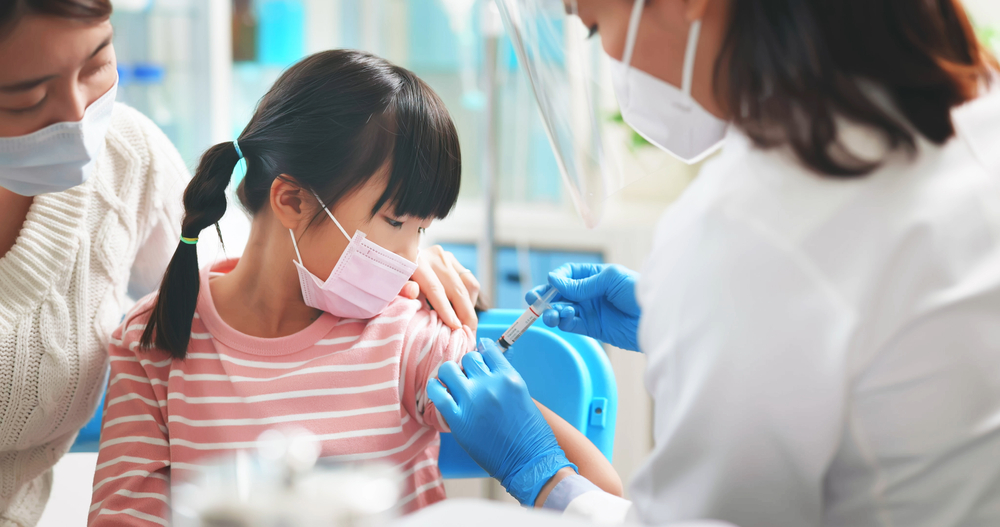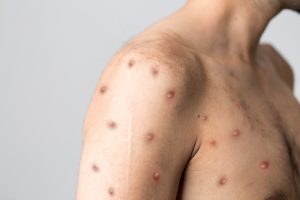The Food and Drug Administration (FDA) authorizes Pfizer-BioNTech and Moderna the use of the COVID-19 vaccine for children.
As the Covid-19 pandemic rages on, Pfizer-BioNTech and Moderna have recently received authorization from the United States Food and Drug Administration (FDA) for the emergency use of Bivalent Booster vaccines in children between the ages of 5 to 11. Covid-19 is caused by the SARS-CoV-2 coronavirus and infected individuals may present with myriad symptoms from mild and manageable symptoms to severe illness and in some instances, death1.
How the Covid-19 Vaccine Works
Pfizer-BioNTech and Moderna vaccines are both messengers of ribonucleic acid (mRNA) vaccines. Such vaccines utilise genetically engineered mRNA to teach the cells in the body how to fight the Covid-19 virus. Cells in the body are triggered by the mRNA to make similar S-shaped proteins as those found on the Covid-19 virus, which in turn triggers a cellular immune response in the body and stimulates other cells to create the antibodies required to effectively fight off the virus2. These mRNA vaccines are administered as intramuscular injections in the upper arm (or thigh in the case of young children). As children spend considerable time in communal areas interacting with other children, such as schools and playgrounds, the risk of transmitting Covid-19 is reduced considerably following vaccination.
Efficacy of Vaccination
Phase 3 trials of the Pfizer-BioNTech mRNA vaccine on 2186 children between the ages of 5 to 11 years old found strong efficacy of 90.7% against symptomatic infections and its safety profile was also found to be similar to that seen in other age groups. Similarly, ongoing Phase 2/3 studies by Moderna on 6000 children between the ages of 6 months to 11 years found efficacy of 37% to 50% against Covid-19.
Side effects of vaccinating children did not differ much from those seen in adults and adolescents and included the following common symptoms, amongst others, that generally resolved after a few days:
- Fatigue
- Headache
- Chills
- Pain at the site of injection
- Fever
Current Primary Series Vaccination Dosage
The dosage of mRNA vaccines for children between the ages of 5 to 11 years old is determined based on the child’s age and not weight. The dosage is summarised as follows:
- For Pfizer and BioNTech mRNA vaccines—a two-dose regimen of 10 micrograms each, 21 days apart.
- For Moderna mRNA vaccines—a two-dose regimen of 50 micrograms each, 1 month apart.
What is a Bivalent Covid-19 Vaccine Booster
A bivalent or updated vaccine booster contains two components, this includes both the original strain of the Covid-19 virus and a component of the sub-variants of the omicron strain in order to increase the overall protection provided. At present, Pfizer-BioNTech, and Moderna have both received authorization from FDA. This is for the emergency use of their updated vaccine boosters for children between the ages of 5 to 11 years old, children who have completed their primary vaccination dosage. Bivalent vaccine boosters are currently approved for use amongst individuals above the age of 12 years two months following the completion of their primary vaccination dosage.
Why Children Should be Vaccinated
As the number of Covid-19 infections among children continues to increase, apart from the health-related benefits associated with vaccinating children, doing so also ensures minimal disruption to their day-to-day lives. Ensuring children are healthy to regularly attend school and engage in academic and social activities with their peers is necessary. It is vital for their development. In addition, by vaccinating children, we are in turn also able to strive for decreased transmission of Covid-19 to adults that are parents, educators, and caretakers of children11. However, the following groups of children might not be eligible for the Covid-19 vaccine:
- Children who previously experienced allergic reactions or anaphylaxis to earlier doses of the Covid-19 vaccine
- Children with cancer and those undergoing current chemotherapy treatments, unless otherwise recommended by the child’s oncologist and medical team.
Prevalence of Covid-19 Vaccination of Children in Asia
Nations across the globe have been participating in the Covid-19 vaccination, and approximately 68% have received at least one dose of the Covid-19 vaccine. Many Asian countries have also begun vaccinating children between the ages of 5 and 11 years old, with Singapore seeing approximately 74% have completed their vaccination regimen. Countries such as Malaysia, Hong Kong, and others in the region have followed suit, with UNICEF reporting that countries such as Bangladesh, Bhutan, Nepal, and Pakistan have recently begun administering vaccinations to children from 5 to 11 years old in recent months too.
At present, there are no instances of serious issues with the health and safety profile of the Covid-19 mRNA vaccines. It is, however, still important to actively monitor new information that is released by health regulatory boards in your country.














